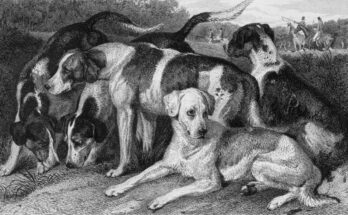Dogs are often called man’s best friend, and for good reason. They bring unconditional love, loyalty, and joy to our lives. However, if you’re a beginner looking to adopt or buy a dog, choosing the best breed of dog can feel overwhelming.
Different breeds have different personalities, energy levels, and care needs. This guide will walk you through the most popular and beginner-friendly dog breeds, helping you choose the perfect furry friend for your lifestyle.
1. Why Choosing the Right Dog Breed Matters
Picking a dog is a long-term commitment. The breed you choose will determine:
- How active your dog will be
- How much grooming is required
- How easy (or difficult) training will be
- How well they fit in with kids, seniors, or other pets
👉 Choosing wisely ensures both you and your dog are happy.
2. Top Dog Breeds for Beginners
Here’s a list of the most popular and beginner-friendly dog breeds, along with their key traits.
1. Labrador Retriever
- Temperament: Friendly, playful, intelligent
- Size: Medium to large
- Best for: Families, kids, active owners
- Care Needs: Regular exercise, moderate grooming
👉 Labradors are one of the most popular dog breeds worldwide. They’re gentle, easy to train, and make excellent family pets.
2. Golden Retriever
- Temperament: Loving, patient, loyal
- Size: Medium to large
- Best for: Families with children, therapy dogs
- Care Needs: Daily exercise, brushing to manage shedding
👉 Known as the gentle giants, Golden Retrievers are perfect for beginners who want an affectionate and trainable companion.
3. German Shepherd
- Temperament: Loyal, protective, intelligent
- Size: Large
- Best for: Active families, guard dog purposes
- Care Needs: High exercise needs, regular grooming
👉 German Shepherds are courageous, intelligent, and versatile. They’re great for families who want both a pet and a protector.
4. Beagle
- Temperament: Curious, playful, sociable
- Size: Small to medium
- Best for: Apartments, families with kids
- Care Needs: Regular walks, minimal grooming
👉 Beagles are easy-going and friendly, making them a favorite among first-time pet owners.
5. Poodle
- Temperament: Smart, obedient, affectionate
- Size: Available in toy, miniature, and standard sizes
- Best for: Allergy sufferers (hypoallergenic coat)
- Care Needs: Regular grooming, mental stimulation
👉 Poodles are highly intelligent and come in different sizes, making them a flexible choice for different households.
6. Bulldog
- Temperament: Calm, gentle, loving
- Size: Medium
- Best for: Apartment living, laid-back families
- Care Needs: Moderate exercise, facial fold cleaning
👉 Bulldogs are low-energy, loyal companions who love cuddles and relaxed lifestyles.
7. Shih Tzu
- Temperament: Affectionate, loyal, playful
- Size: Small
- Best for: Apartments, seniors, families
- Care Needs: Regular grooming, short walks
👉 Shih Tzus are lap dogs that thrive on human attention. They’re a perfect match for beginners looking for a small, adorable pet.
8. Dachshund
- Temperament: Brave, curious, fun-loving
- Size: Small
- Best for: Small homes or apartments
- Care Needs: Moderate exercise, minimal grooming
👉 Also known as “sausage dogs”, Dachshunds are loyal and fun pets, great for families with limited space.
9. Boxer
- Temperament: Energetic, protective, loyal
- Size: Medium to large
- Best for: Active owners, families with kids
- Care Needs: Daily exercise, short coat care
👉 Boxers are playful, alert, and protective—great companions for energetic families.
10. Pug
- Temperament: Charming, loving, funny
- Size: Small
- Best for: Apartments, first-time owners
- Care Needs: Minimal grooming, regular vet check-ups
👉 Pugs are known for their funny expressions and lovable nature, making them one of the easiest breeds to keep.
3. Factors to Consider Before Choosing a Dog Breed
Before deciding, think about:
- Space: Do you live in an apartment or a house with a yard?
- Lifestyle: Are you active or more relaxed?
- Time commitment: Some breeds need hours of attention daily.
- Family members: Consider kids, elderly, or other pets at home.
- Allergies: Hypoallergenic breeds like Poodles are best for allergy sufferers.
4. Small vs. Large Dog Breeds – Which is Better?
Both have advantages:
- Small breeds: Easier for apartments, lower food costs, manageable exercise needs.
- Large breeds: Great protectors, active companions, often better with kids.
👉 The best choice depends on your lifestyle and living conditions.
5. Tips for First-Time Dog Owners
- Start with a beginner-friendly breed (like Labradors, Beagles, or Poodles).
- Invest in training early—obedience training makes life easier.
- Provide a balanced diet with proper nutrition.
- Schedule regular vet check-ups.
- Give love, patience, and consistency.




